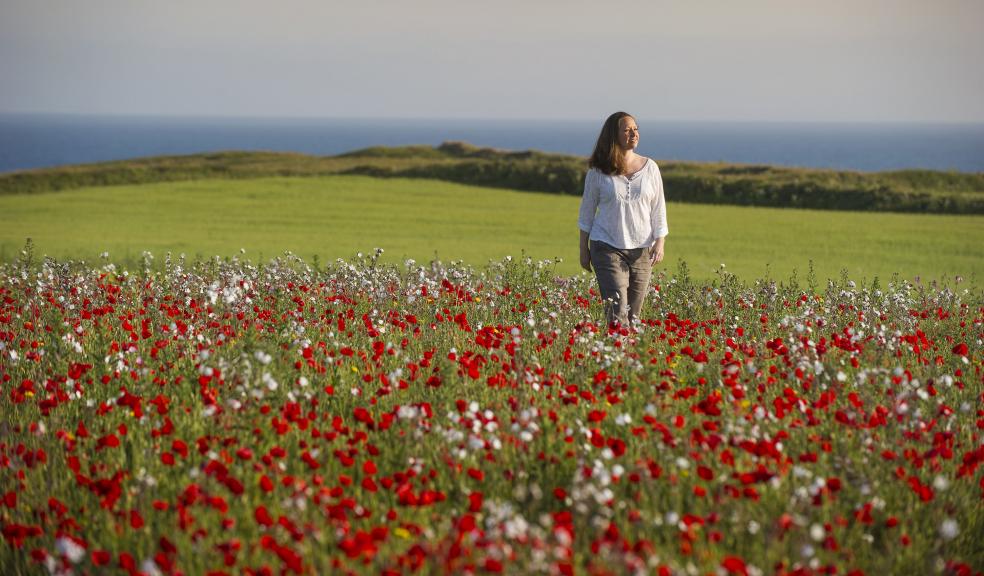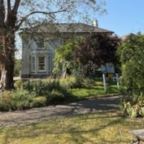
Cornish coast puts on summer show
Weasel’s snout, Venus’s looking glass, small-flowered catchfly…as summer unfolds one of the south west’s rarest natural spectacles comes into its own along the north Cornish coast.
Carefully managed for nature and people by the National Trust, the West Pentire arable fields near Newquay are exploding in a riot of red poppies and yellow corn marigolds – but also creating a much-needed haven for some of the most endangered wild flowers in the country.
This farmland is managed specifically as a nature reserve for plants and an animal associated with arable cultivation, and is not commercially farmed. And it’s one of only a few such sites in Britain. Year after year visitors come to take in this much-loved sight – fields full of wild farmland flowers, and a real reminder of traditional non-intensive farming methods of the past, which worked in harmony with nature.
Local botanist and National Trust volunteer Ian Bennallick knows West Pentire well, and has been helping survey the land since the late 1990s. Ian grew up on a farm in Cornwall, where an early interest in wild flowers and ferns developed into a wide-ranging enthusiasm for the natural world.
Ian said: “West Pentire has it all. In one place you have a whole suite of rare and beautiful arable plants, found in numbers unheard of in other parts of the country. It’s wonderful to see people coming from far and wide to appreciate not only the summer show of flowers but also their dramatic setting, where the land meets the sea.
Last year, Ian found small-flowered catchfly in large numbers. This little white campion has declined dramatically in recent decades due to modern agricultural practices and loss of habitat. Ian is also co-ordinator of the Botanical Cornwall Group and leads field trips in the county.
The West Pentire site has been surveyed since the early 1990s, and as Mike Simmonds, National Trust Lead Ranger, said: “It’s fantastic to be able to share this special place with visitors over the summer. As we celebrate 50 years of the National Trust’s Neptune coastal campaign, it’s vital that we continue to care for the coast for nature and people alike.”
The arable fields on West Pentire are included in a Higher Level Stewardship Scheme (HLS) which provides the funding and guidance to help the Trust, and tenant farmer Bob Coad, continue to conserve and enhance the site for its amazing abundance and variety of arable flowers.
Part of each field is sown with barley in the spring and is left un-harvested providing a much-needed winter food source for declining species of birds. Over winter, seed-eating birds such as goldfinch, linnet and skylark can be spotted in the West Pentire fields. The crop also provides shelter and habitat for the developing wild flowers, nesting birds and small mammals. Alongside the crop, wildflower plots are ploughed in the autumn and left fallow, allowing plenty of seed germination time for the poppies and other wild flowers that everyone loves to see.
The National Trust Cubert wildlife walk takes in this beautiful stretch of coastline, and the special summer show of flowers www.nationaltrust.org.uk/article-1356405233898
Celebrate the North Cornwall coast this year with the National Trust’s Coastal Festival. Three hundred miles of coast in the South West to explore, over 200 events, £1million to raise (in order to care for the coast for just one year) and lots of ways to get involved. Meet Trust staff who work around the coast, and enjoy a bird's eye view of some of the places they look after. More here: www.nationaltrust.org.uk/swcoast
For more information about West Pentire go to www.nationaltrust.org.uk/holywell-and-crantock











